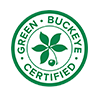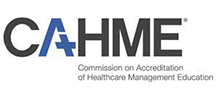Infectious disease epidemiologist to discuss how viruses are being used to fight super bugs in free lecture series.
Antimicrobial resistance is one of the most pressing global health issues of the 21st century and is worsening with the COVID-19 pandemic. With existing antibiotics losing potency and limited classes of antibiotics in the pipeline, alternatives are needed to battle multi-drug resistant bacterial infections (‘superbugs’).
Through the lens of her family’s personal experience with a deadly superbug infection, Steffanie Strathdee, associate dean of global health sciences and Harold Simon Distinguished Professor of Medicine at the University of California San Diego, will discuss the medical history of viruses that attack bacteria (bacteriophage, or phage) and how they have been used to treat superbug infections for more than 100 years.
This presentation will discuss the reasons why bacteriophage therapy fell out of favor in the West, drawing from research conducted by medical historian Dr. William Summer. It will also cover recent advances in phage therapy that led to the founding of the first dedicated phage therapy institute in North America (IPATH), and the role of her family’s case in the process.
This event, presented by the College of Arts and Sciences, is free and open to the public. Please RSVP to attend. Seating will be on a first-come, first-served basis.




